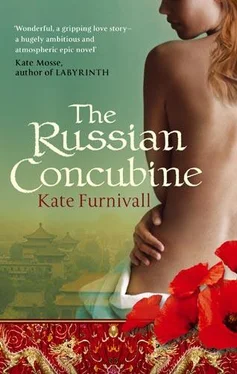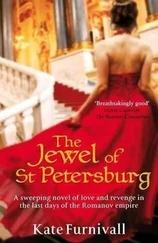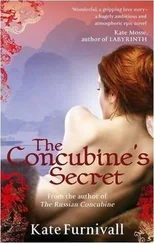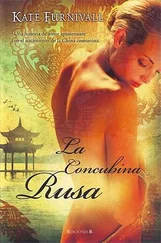Lydia sat back on her heels but continued to stroke her mother’s hair, again and again, calming herself by the feel of it under her fingers. At the same time she told her in detail about her narrow escape in the old town today and about her Chinese protector and how terrified she’d been of the disgusting snake.
‘So you see, I might not have come home today, Mama. I might have fallen into the clutches of a white slave trader and been shipped down to Shanghai to become a Lady of Delight.’ She made a sound that was supposed to be a laugh. ‘Wouldn’t that have been funny? Don’t you think so, Mama? Really funny.’
Silence.
The place smelled sour. Of cigarette smoke and ash. The windows were closed and the heat was stifling. Lydia picked up the empty vodka bottle and hurled it with a cry of rage against the wall. It exploded into a thousand pieces.
It took Lydia more than an hour to clean the room. To sweep up the pieces of china, the glass, the petals, and the feathers. By far the worst were the feathers. They seemed to come to life and mock her efforts at capture as they floated teasingly just out of reach. By the end of it, she had a cut knee from where she’d knelt on a tiny stiletto of porcelain, an ache in her back from all the brushing, and a handful of feathers in her hair. On top of everything else, she was now unbearably hot, so she threw off her clothes and walked around in just her bodice and navy knickers.
Valentina slept through it all. At one point Lydia eased a pillow under her head on the floor and kissed her cheek. The windows were open but it made little difference, as all the heat of the house rose and gathered in their airless aerie under the roof. The attic was just one long room with slanted walls and two dormer windows, not improved by a smattering of down-at-the-heels furniture. A threadbare carpet, which might once have been colourful but was now a washed-out grey, covered the centre of the floorboards. Each end of the room was partitioned off by a curtain to form two windowless bedrooms, and though the curtains managed to give the illusion of privacy, sounds carried through them with ease. So both mother and daughter had learned the courtesy of silence.
Lydia unwrapped her packages. But the sudden abundance of good food did not tempt her now. Nor did she bother with the meal she had planned to cook. She had no heart for it. Nor stomach either. Automatically she rinsed the fruit and vegetables in cold water because the Chinese were disagreeably fond of using human manure in their fields, but then she left them discarded on the drain board, unchopped and uncooked.
She made herself a drink, a cup of milk with a spoonful of honey in it, and dragged a chair to the window to sit with her elbows on the sill, looking down on the street below. A dingy terrace. Narrow houses. With doors that opened straight onto the pavement. Nothing nice about it in Lydia’s eyes, nothing to lift her mood of despair. The Russian Quarter, they called it, packed with Russian refugees who were stuck here with no papers and no jobs. The lowly paid work went to the Chinese, so unless you could turn a trick at sword swallowing for coppers in the marketplace or had a wife willing to walk the streets, you starved. Simple as that.
Starved or stole.
But she kept looking, kept watching. The bald man with the white stick from next door, the two German sisters strolling arm in arm, the scrawny dog stalking a butterfly, the baby playing with a rattle in a doorway, the cars crawling past, the bicycles, even a grim-faced man with a pig in a wheelbarrow.
The only one to glance up in her direction was a big bear of a man, unmistakably Russian with his mass of oily curls sneaking out from under an astrakhan hat and a heavy beard that smothered the lower half of his face. A black eye patch gave him a gloomy, sinister appearance. Just like the picture of Bluebeard, the pirate in one of her library books, except this one didn’t carry a knife glinting between his teeth, and as he passed she noticed that his knee-high boots seemed to have a howling wolf tooled into the side. She felt like howling herself. But instead she continued to look at each person with interest, anything rather than look at what lay in the room behind her.
The sky was growing darker as the heavy clouds on the horizon marched nearer and the evening air began to smell of rain. To keep her mind off the one thing that was filling it, she wondered whether it was raining in England. Polly said it always rained in England but Lydia didn’t believe her. One day she was determined to go there and find out for herself. It was odd the way Europeans came to China by choice when, from what she’d read, there seemed to be everything that was beautiful and sophisticated and desirable in Europe already. In London, in Paris, in Berlin. Well, maybe not Berlin anymore. Not since the war. But London, yes. The Ritz. The Savoy. Buckingham Palace and the Albert Hall. And all the clubs and shops and theatres.
Regent Street and Piccadilly Circus. Everything. Just everything you could possibly ever want. So why leave them?
She gave a deep shuddering sigh, and a trickle of sweat crept from her ear to her chin like a tear. Oh God, she didn’t know what to do. What to say. Her heart was kicking like a mule in her chest and all she could think of was whether it was raining in England. That was so stupid. She dropped her head on her arms and lay quite still, until her breathing grew calmer.
‘Papa, what should I do for her? Please, Papa. Tell me. Help me.’
No one knew that Lydia whispered to the memory of her father when she was in trouble. Not even Polly. And certainly not her mother. Her mother never mentioned him, didn’t even use his surname anymore.
‘Papa,’ she whispered again, just to hear the sound of that word coming out of her mouth.
Finally she abandoned the window and turned back to the room. It was a grim place to live, with its low sloping ceiling, its moody little paraffin cooking stove and its chipped earthenware sink, but her mother had done everything she could to make it bearable. More than bearable. She’d made it colourful and flamboyant. The nasty brocade sofa and armchair, worn through at the arms, had vanished from sight under swathes of material in wonderful purples, ambers, and magentas that seemed to glow with life. Armfuls of cushions everywhere in gold and bronze gave the room an atmosphere of bohemian looseness, which her mother called risqué and which Olga Zarya called lascivious. A fringed shawl the colour of Lydia’s hair was draped over the pine table, and candles were gathered on a brass dish in the centre so that their flames flickered and reflected on the coppery silk.
To Lydia it was home. It was all she had. She went over to the sleeping figure once more. In the fading light of day she sat on the grey carpet and held her mother’s grey hand in hers.
‘Darling.’ Valentina lifted her head from the pillow on the floor and blinked slowly like a cat stirring itself. ‘Darling, I fell asleep. What time is it?’
‘The church clock just struck one.’ Lydia did not look up from the book in front of her on the table.
‘In the morning?’
‘It’s not this dark at one o’clock in the afternoon.’
‘Then you should be in bed. What are you doing?’
‘Homework.’ Still she refused to look at her mother.
Valentina stretched, easing the kinks out of her spine, sat up and noticed the pillow. She closed her eyes for a brief moment and shuddered.
‘Darling, I am sorry.’
Lydia shrugged indifferently and turned a page of her Outlines of English History , though the words in front of her eyes jumped around without meaning.
‘Don’t sulk, Lydia, it doesn’t suit you.’
‘Lying on the floor doesn’t suit you either.’
Читать дальше












